某微型车(上汽通用五菱面包车)后悬架设计(含CAD图,SolidWorks三维图)(任务书,开题报告,文献摘要,外文翻译,论文说明书18000字,CAD图9张,SolidWorks三维图)
摘要
随着社会的发展,经济水平的提高,人们对交通工具也越来越依赖,这就导致了一系列的交通问题,这时候,微型车的出现一定程度上缓解了交通压力。
以某款面包车的钢板弹簧非独立后悬架为参考,对本次微型车的后悬架进行设计。第一章主要讲述汽车悬架的发展概述以及本次的设计要求。第二章主要讲述了各类悬架的结构以及特点。第三章主要是对悬架的性能参数的选取。第四章主要是对钢板弹簧等部件的设计计算,强度校核,利用SolidWorks三维建模软件建立钢板弹簧模型,并导入ANSYS进行满载状态下的板簧静应力分析。第五章主要是减振器的设计计算,相关参数的选择,最重要的是相对阻尼系数,阻尼系数以及最大卸荷力的计算。第六章主要是对悬架进行了平顺性分析,对悬架的动态特性进行分析,以及提出了改善汽车平顺性的措施。第七章则主要是后悬架的三维模型的建立。最终完成了整个微型车后悬架的设计工作。
关键词:微型车;钢板弹簧;ANSYS;静应力分析;平顺性
Abstract
With the development of society and the improvement of economic level, people are
increasingly dependent on transportation. This has led to a series of traffic problems. At this time, the emergence of mini-vehicles has eased traffic pressure to some extent.
Taking the leaf spring non-independent rear suspension of a certain van as a reference, the rear suspension of the mini vehicle is designed. The first chapter mainly describes the development of the automobile suspension and the design requirements of this time. The second chapter mainly describes the structure and characteristics of various suspensions. The third chapter mainly selects the performance parameters of the suspension. The fourth chapter is mainly about the design and calculation of leaf springs and other components, the strength check, the use of SolidWorks three-dimensional modeling software to establish the leaf spring model, and import ANSYS to analyze the leaf spring static stress under full load. The fifth chapter mainly deals with the design and calculation of shock absorbers, the selection of relevant parameters, and the most important ones are the relative damping coefficient, damping coefficient and the calculation of the maximum unloading force. The sixth chapter mainly analyzes the ride comfort, analyzes the dynamic characteristics of the suspension, and proposes measures to improve vehicle ride comfort. The seventh chapter is mainly about the establishment of the three-dimensional model of the rear suspension. Finally, the design of the rear suspension of the entire minicar was completed.
Key Words:micro car;leaf spring;ANSYS;static stress analysis;ride
本次设计的参考车型为上汽通用五菱的一款面包车,通过调查其实车后悬架的结构形式,经过综合考虑,这次设计的后悬架结构为纵置式钢板弹簧非独立悬架。一是由于钢板弹簧非独立悬架成本较低,制造简单,维修方便,性能可靠,尽管技术含量不比独立悬架,但是其在价格上的优势是巨大的;二是钢板弹簧非独立悬架在这类车型上应用广泛,消费者也比较熟悉。
尤其是该款车的受众主要是农村那些想要买车却资金有限的消费群体,既能满足其出行的要求,又能满足其运输一定货物的需求,在价格上的优势无疑是一把杀手锏。因此这次后悬架的结构就选择钢板弹簧非独立悬架。
表1 参考车型参数
项目 数值
轴距 3050mm
整备质量 1235kg
座位数 7
总质量 1760kg
车辆尺寸(长*宽*高) 4490*1615*1900mm
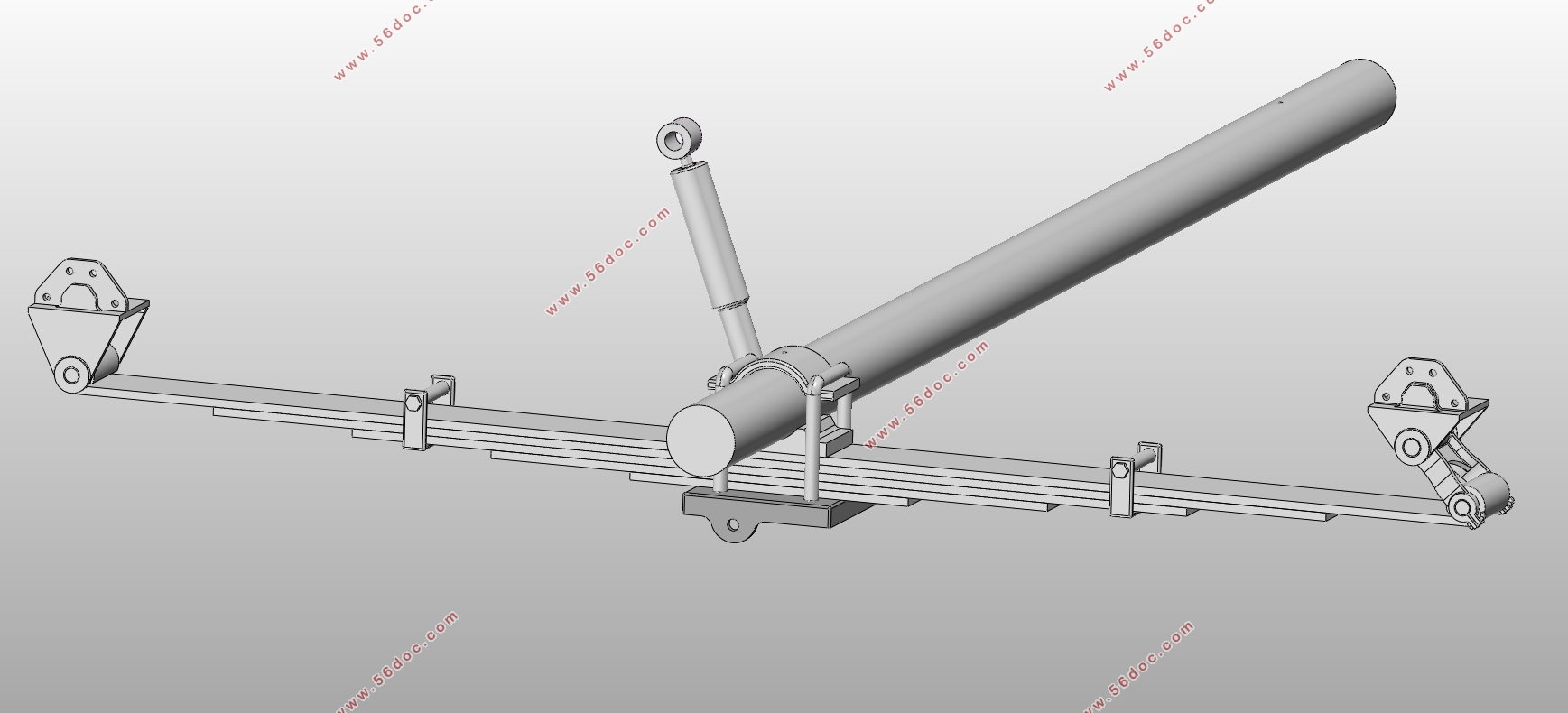
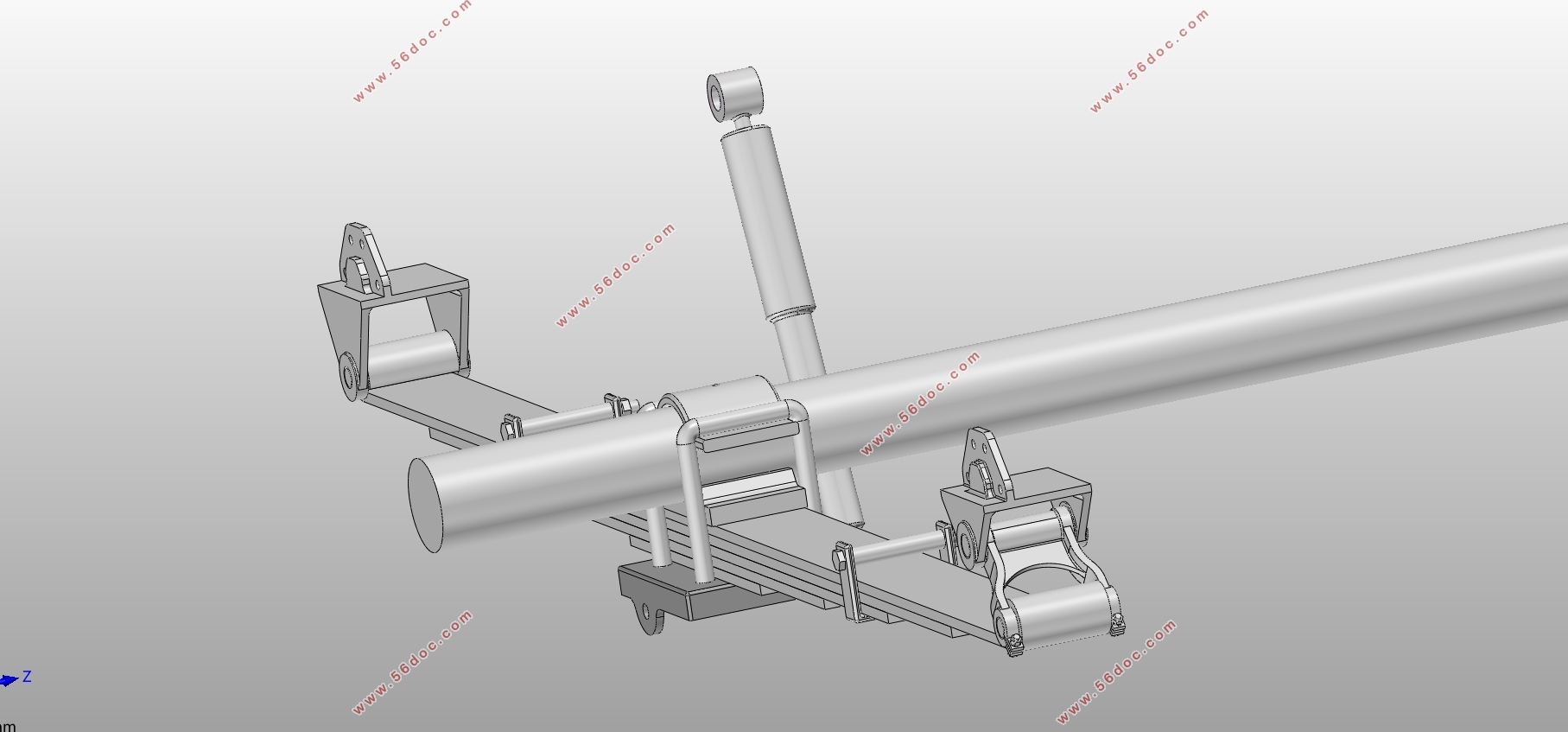
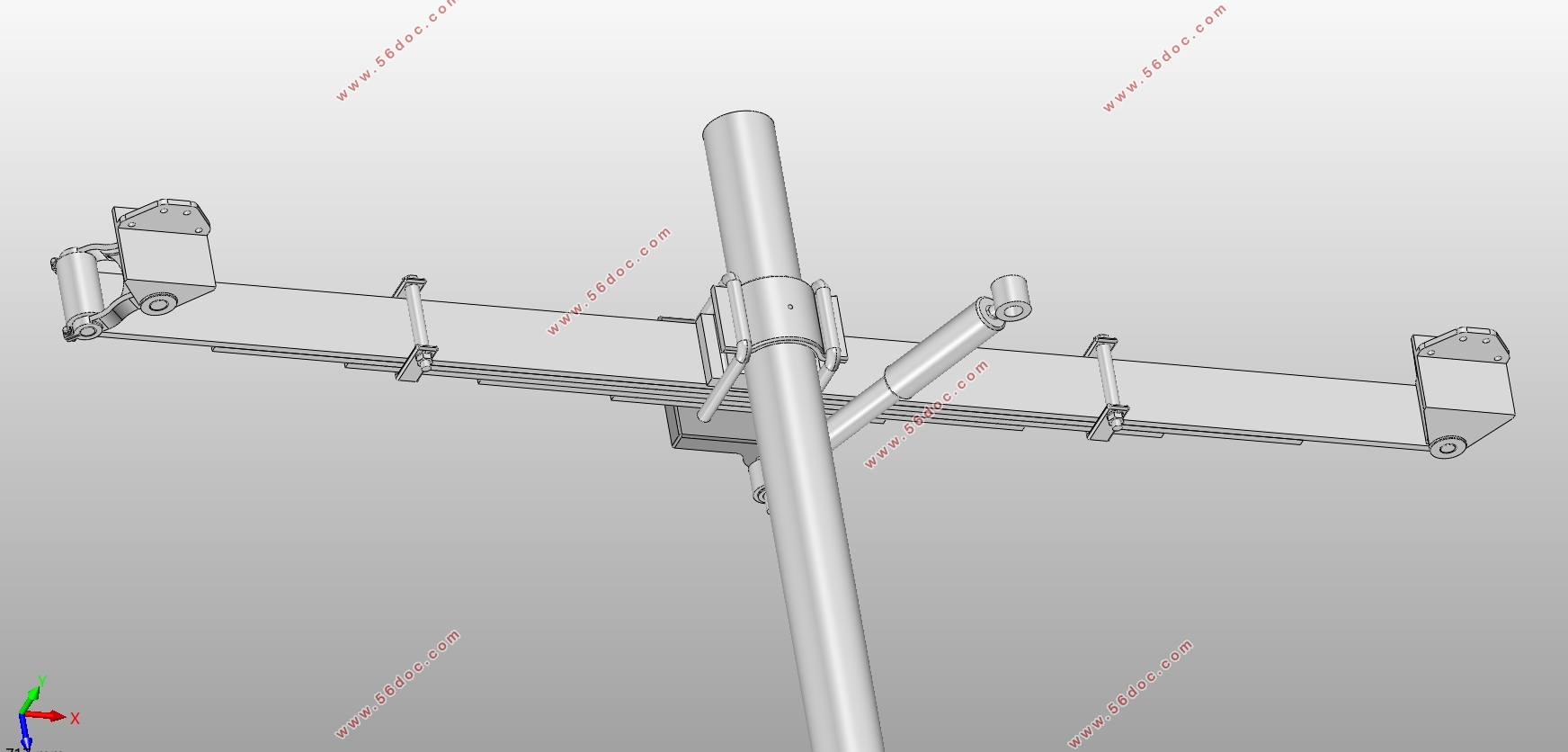
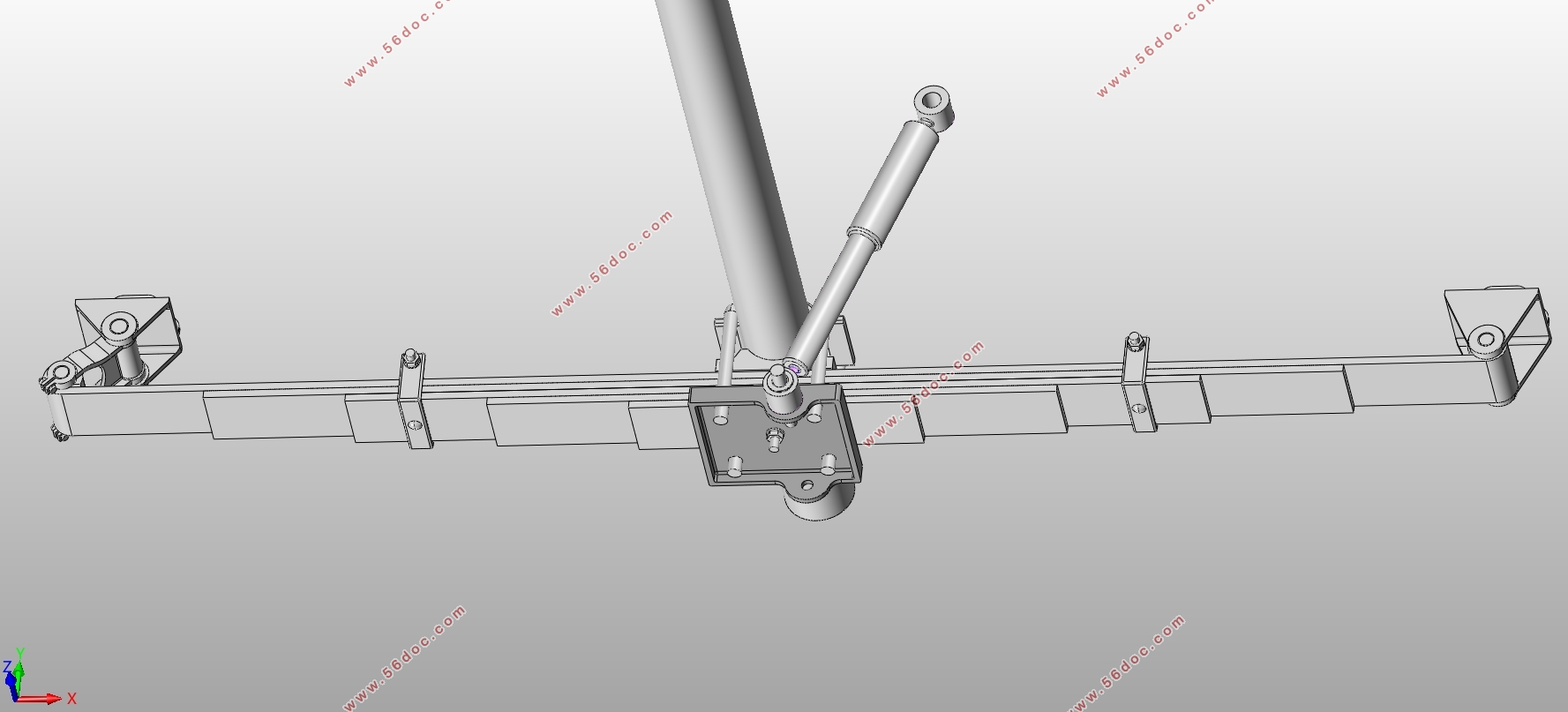
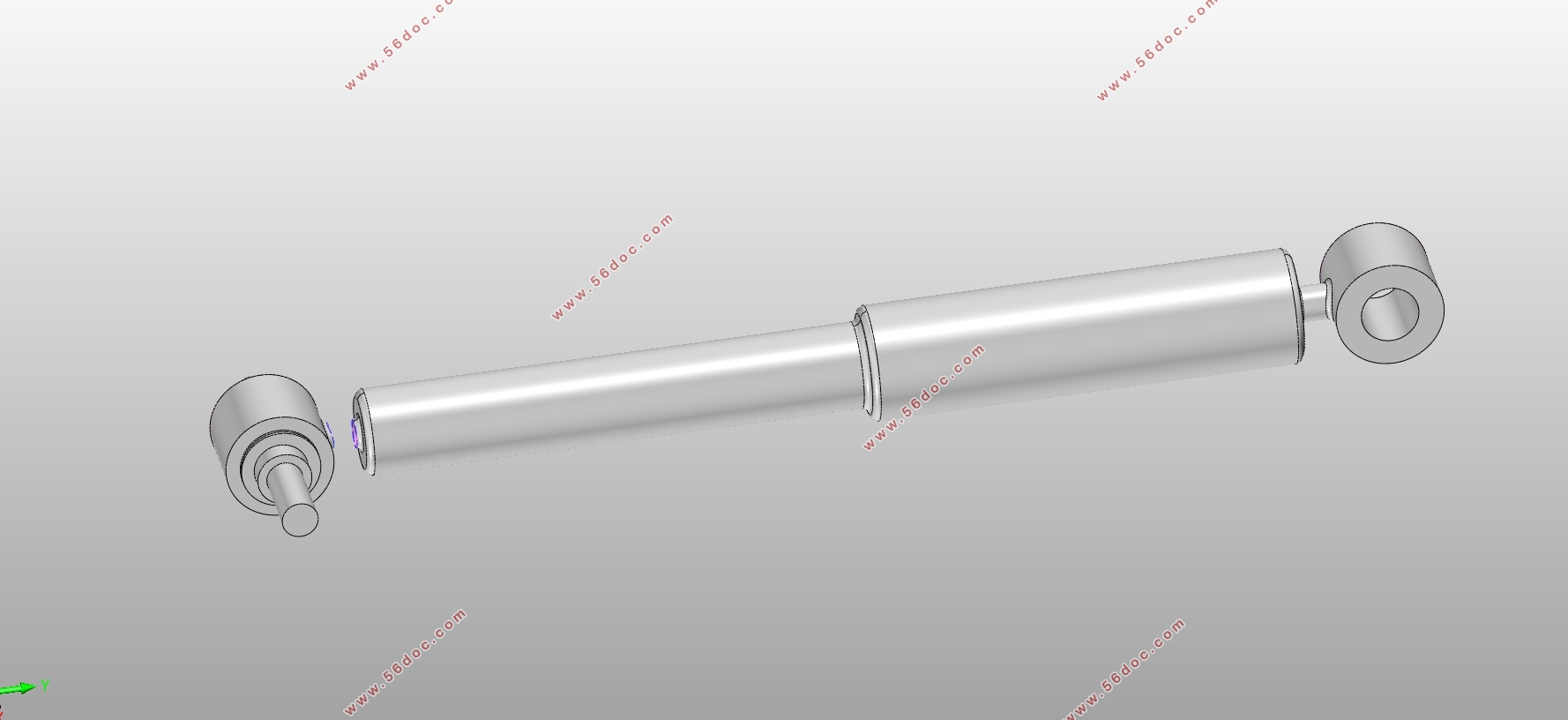
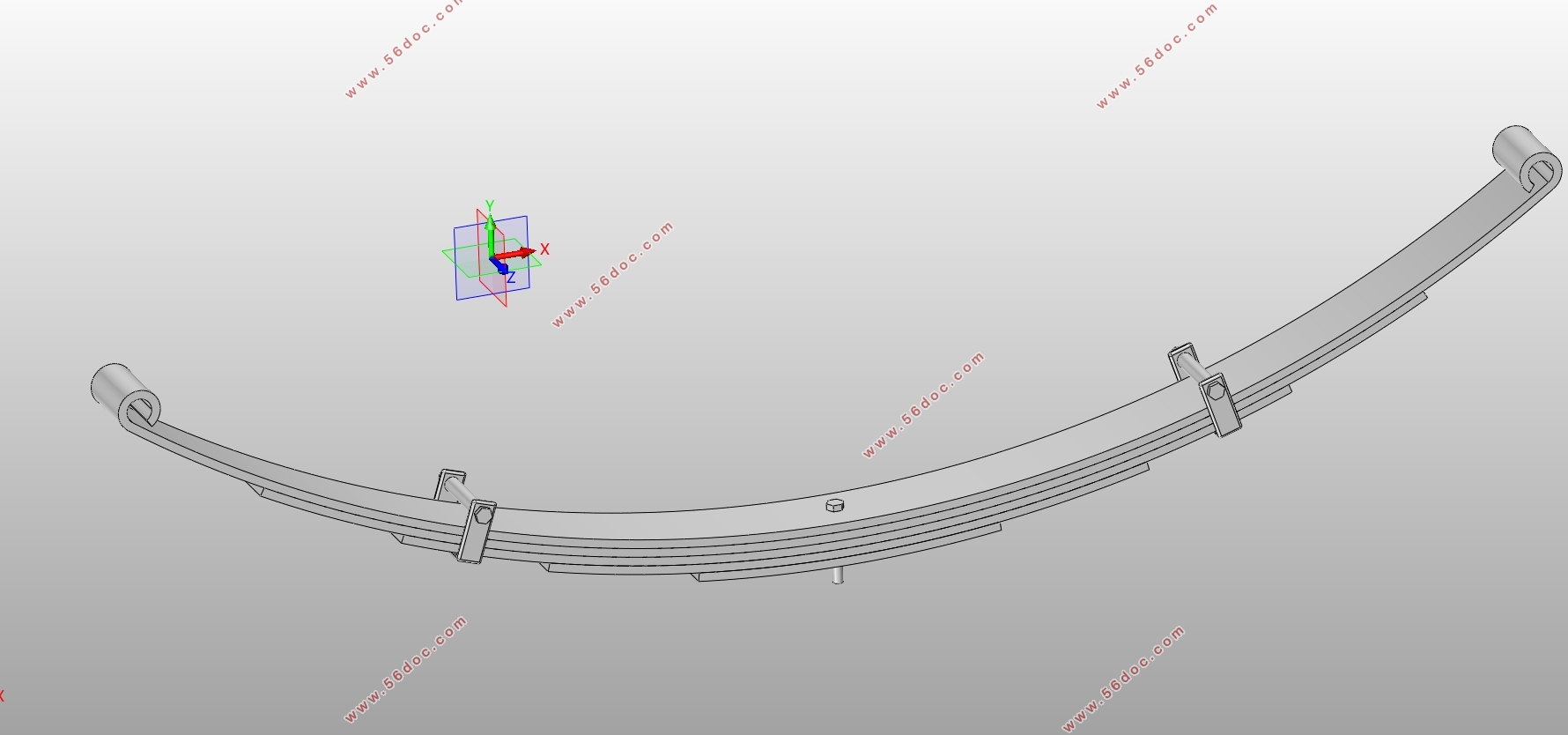
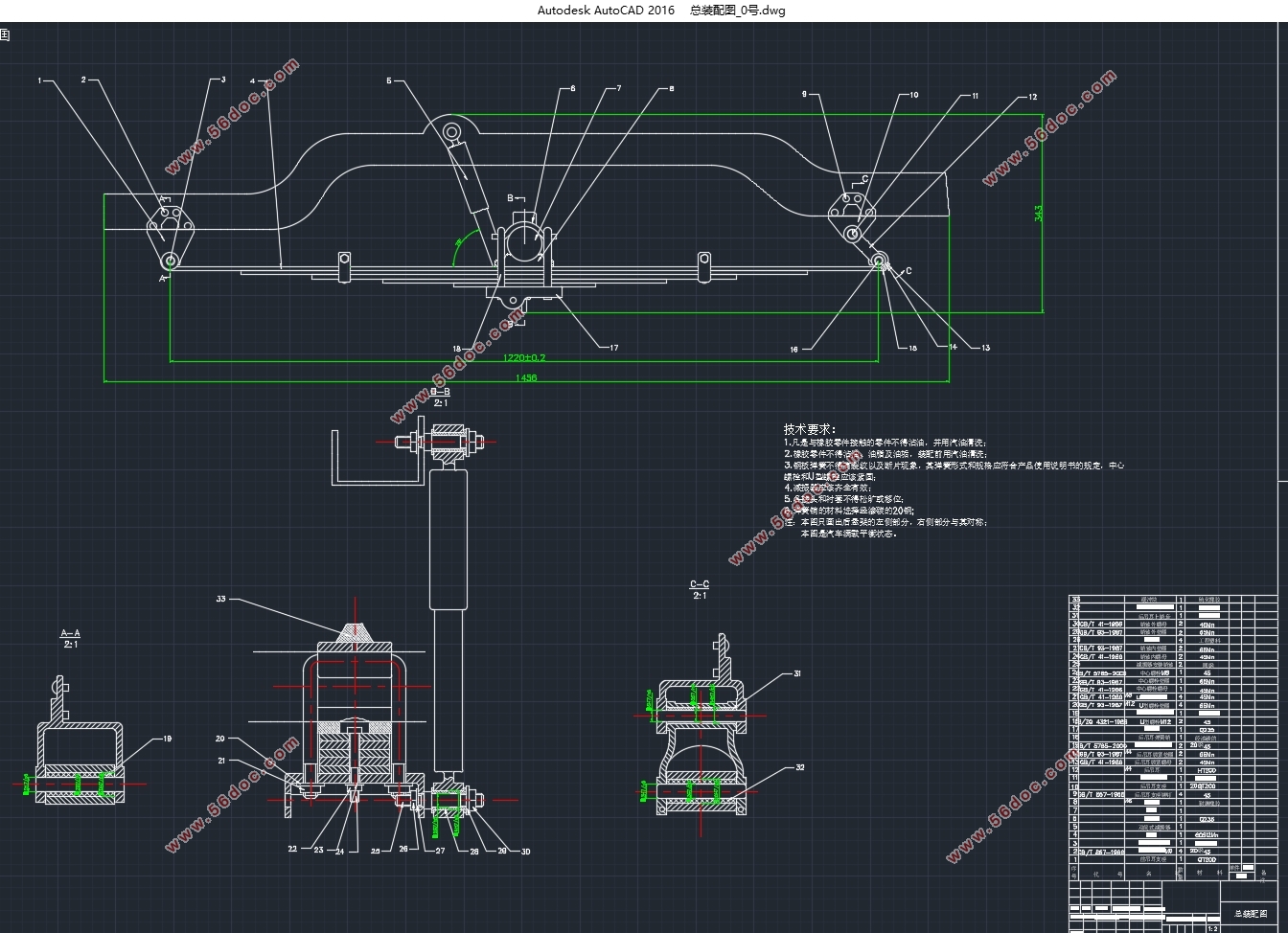
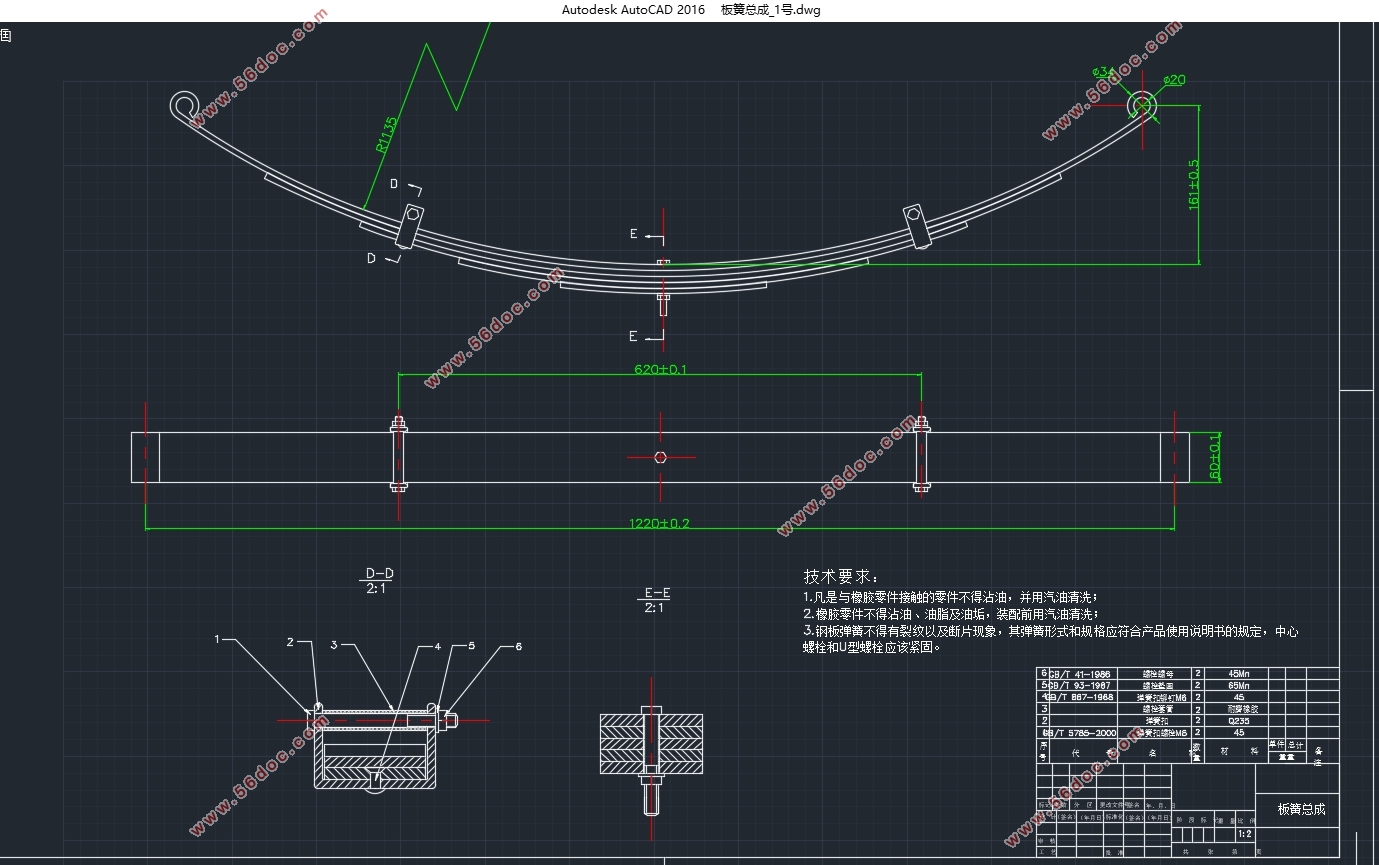
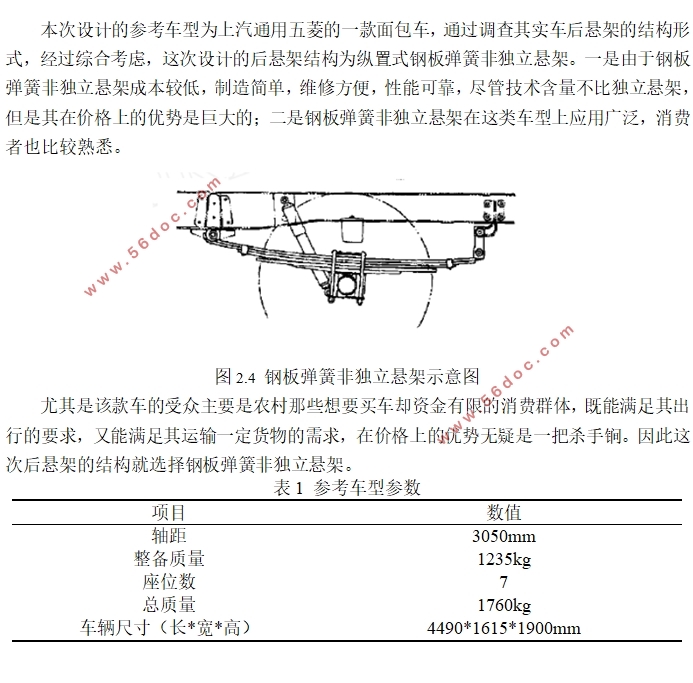
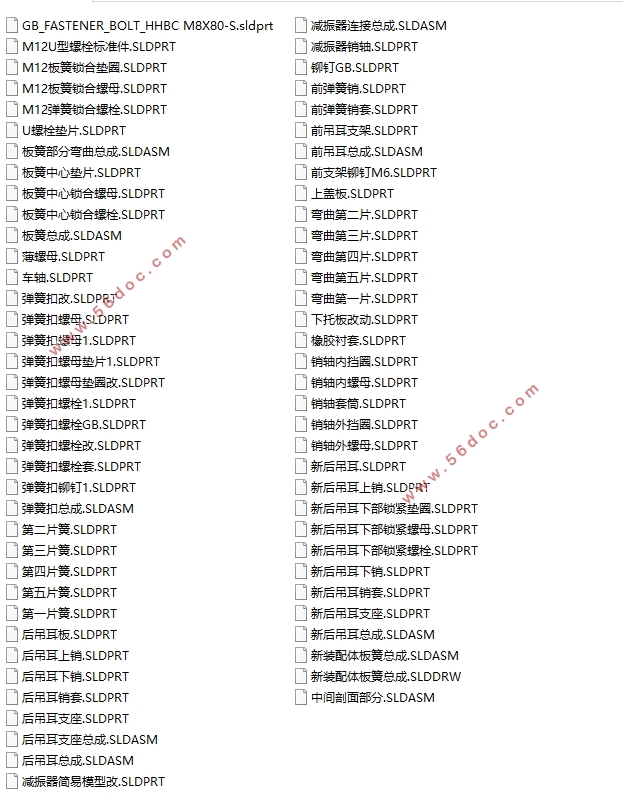

目录
摘要 Ⅰ
Abstract Ⅱ
1绪论 1
1.1前言 1
1.2国内外悬架系统的发展现状以及趋势 1
1.3悬架研究的目的、意义以及技术要求 2
2悬架结构的分析与选择 3
2.1汽车悬架的功能与组成 3
2.2非独立悬架的分类与特点 3
2.3独立悬架的分类与特点 4
2.4后悬架结构形式的选择 6
3悬架性能参数的选取 7
3.1悬架的偏频和静挠度 7
3.2悬架的动挠度 7
3.3悬架的弹性特性 8
3.4本章小结 8
4弹性元件的设计计算 9
4.1钢板弹簧主要尺寸参数的确定 9
4.2钢板弹簧刚度的验算 12
4.3板簧自由状态下的弧高H0和曲率半径R0的确定 13
4.4钢板弹簧总成组装后弧高以及曲率半径的核算 15
4.5钢板弹簧极限工况下的强度验算 16
4.5.1驱动时最大应力 16
4.5.2汽车通过不平路面时最大应力 17
4.5.3钢板弹簧卷耳处和弹簧销的强度校核 17
4.6板簧的有限元分析 18
4.6.1板簧三维模型的建立 18
4.6.2材料参数的设置 19
4.6.3网格的划分 19
4.6.4簧片之间的接触设置 19
4.6.5约束设置 19
4.6.6载荷的施加 20
4.6.7分析求解 20
4.7本章小结 21
5减振器的设计计算 23
5.1减振器概述 23
5.2双筒式减振器的工作原理 23
5.3减振器主要性能参数的选择 24
5.3.1相对阻尼系数 的选择 25
5.3.2减振器阻尼系数 的确定 25
5.3.3最大卸荷力F0的确定 26
5.4减振器主要尺寸的选择 26
5.4.1筒式减振器工作缸直径D的确定 26
5.4.2储油缸直径Dc的确定 27
5.5本章小结 27
6平顺性分析 28
6.1单质量悬架系统的动态特性 28
6.1.1车身加速度对 的幅频特性 29
6.1.2车轮与路面间的相对动载荷对 的幅频特性 30
6.1.3悬架弹簧动挠度对 的幅频特性 31
6.2影响汽车平顺性的因素及改善措施 33
6.3本章小结 33
7悬架部分零件三维图 35
8全文总结与展望 37
8.1本文总结 37
8.2工作展望 37
参考文献 38
致谢 39
|























